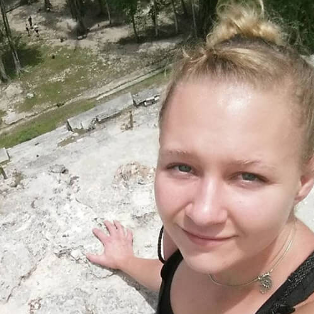Reality Winner (USA)
2019 SPECIAL RECOGNITION AWARD
Photo: Reality Winner
Updated: June 2021
Former US intelligence specialist Reality Winner is paying a high price for ensuring the public’s right to know about nation-state interference in the 2016 US Presidential elections. Her 63 month sentence is the longest ever imposed by a civilian court for the unauthorized release of government information to the media.
Reality Winner is a US national security whistleblower and US drone programme veteran. Decorated for her work as a cryptolinguist in the US Air Force – she is fluent in Farsi, Dari and Pashto – Winner was honourably discharged in November 2016. She then took up a post with the Pluribus International Corporation as a Georgia-based contractor for the National Security Agency (NSA).
While Winner was working for Pluribus, online news publication the Intercept published a piece based on a top secret NSA report, which had been mailed to them anonymously. The report described how Russian agents had sent spear-phishing emails to more than 100 local election officials just days before the November 2016 elections. State election officials only learned about the attempted phishing attack as a result of the Intercept’s reporting, as NSA had not shared information about the threat to those directly affected.
Reality Winner’s arrest was announced shortly after the Intercept published their story on 5 June 2017. The publication had contacted the NSA on 30 May and shared copies of the documents disclosed to them in order to confirm their veracity. The NSA then notified the FBI on 1 June, beginning the trail that led to Winner’s apprehension. She was charged with one count under the Espionage Act.
Unusually for a case of this type – and despite her distinguished service to her country – Reality Winner was denied bail pending trial. Prosecutors argued that Winner’s aptitude for Middle Eastern languages and desire to travel made her a potential security risk.
After a year in a small county jail in Georgia, where she shared a single cell with up to a dozen other prisoners, Winner indicated that she would agree to a plea deal. Her decision was in part due to her legal team’s inability to raise public interest issues in her defence – including references to media reports in the public domain – and the denial of all but one of their subpoenas. In addition, Winner, who developed an eating disorder while in the military, was struggling to obtain an adequate diet at the Georgia facility and relying on occasional deliveries of fresh fruit from a local church.
In August 2018, Reality Winner was sentenced to five years and three months’ imprisonment, the longest sentence handed down in any civilian whistleblower case in US history. At the time, it was noted that the length of sentence was likely intended to have a chilling effect rather than reflect the degree of damage caused by release of the information.
Prosecutors’ claims about harm to national security caused by Winner’s disclosure were in any case undermined by Special Prosecutor Mueller’s public indictment of Russian intelligence personnel, issued in July 2018 shortly before Winner was sentenced. Special Prosecutor Mueller’s indictment includes every detail the Intercept redacted from the NSA report in their original publication.
Writing in the Intercept, Reality’s mother Billie Winner-Davis has expressed her frustration that, among all those whose names have been linked with attempted election interference, it is her daughter – the whistleblower – who has paid the highest price.
“My daughter was sentenced to five years in prison for releasing a single document from the National Security Agency with proof of a threat to our voting system, when no one else would give the public the truth,” she wrote.
“Her conviction wrongly portrayed her as a traitor and spy. To give the public proof of a threat to our nation, Reality violated her contract and nondisclosure agreement, and may have violated the law. She did so at a time when Russian interference in our 2016 presidential election was being hidden and downplayed”
“She certainly should be held accountable for her actions, and she is. But other figures in the news today — those who actually played roles in the malfeasance surrounding the Trump campaign and transition — do not appear to be paying near the price that she and our family are paying.”
Reality Winner’s case is a reminder of the enormous practical obstacles that exist to putting together an effective defense to charges under the 1917 Espionage Act. Her bravery in speaking out on a matter of acute public concern is eminently deserving of Special Recognition.
Winner’s is one of five Espionage Act indictments to date under the Trump administration, suggesting that the Obama-era precedent of whistleblower prosecutions has paved the way for an even worse situation under his successor.
Update: Reality Winner was released from prison in June 2021, after serving four years. Her story has become the subject of several films.

